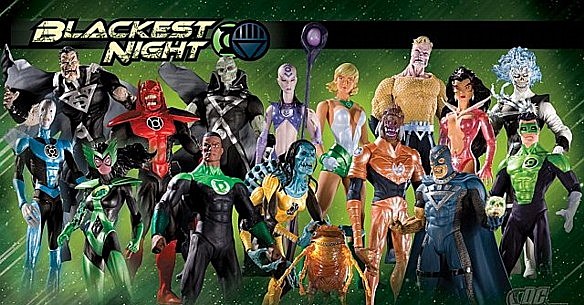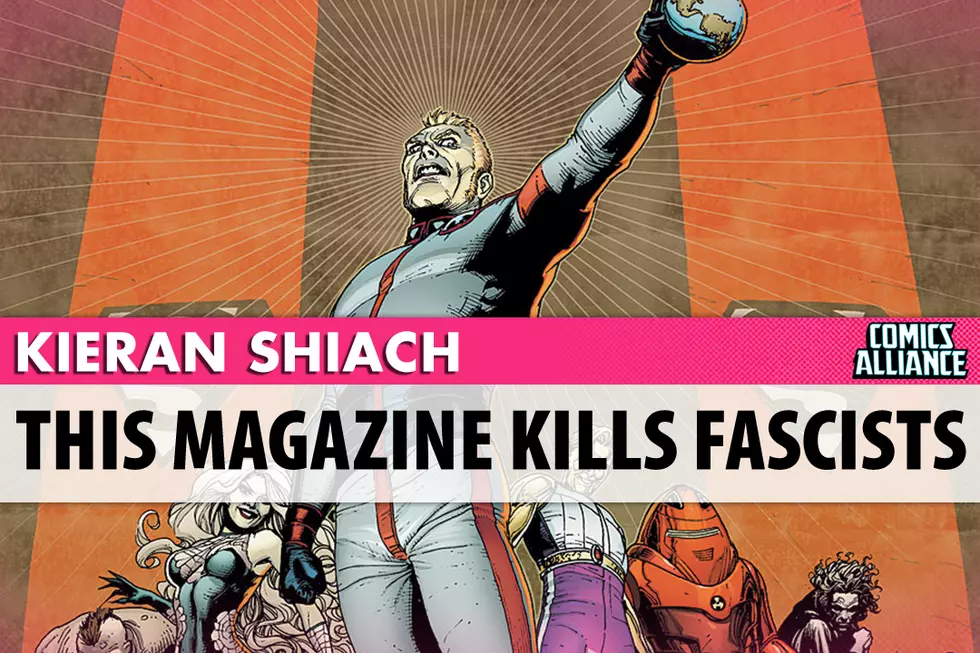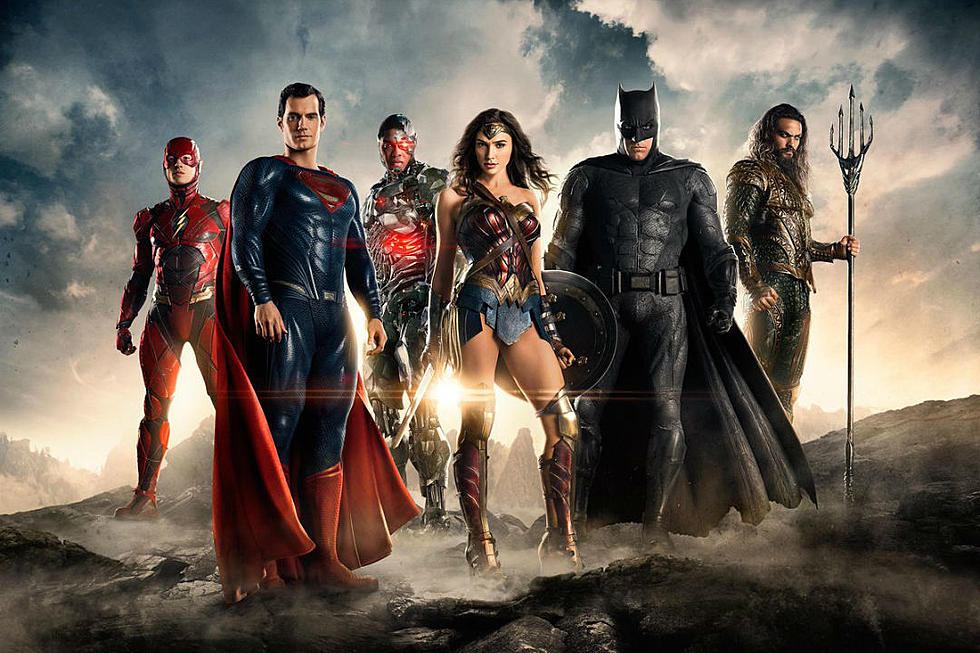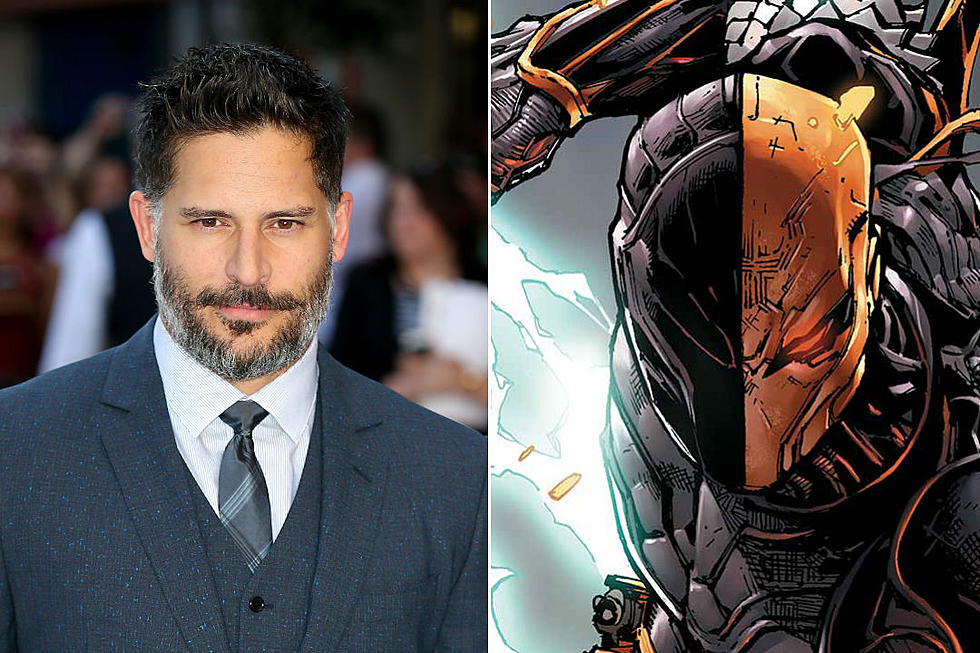
Blackest Night: How the DC Comics Audience Got Their Groove Back

To say that DC Comics has galvanized their fanbase with "Blackest Night" is like saying that "Thriller" had a couple of hit songs. The Geoff Johns/Ivan Reis spacefaring zombie superhero epic -- whose final issue hits on Wednesday -- has been a gigantic success for the publisher on almost every conceivable level, selling comics, trinkets, action figures, t-shirts and convention tickets. But why "Blackest Night"? Why not the other mega-crossover, banshee-yell superhero events recently, like "Final Crisis" or "Siege"?
Critically, it's been met with the standard backlash afforded any Geoff Johns vehicle, but do reviews even matter? "Blackest Night" isn't about what's happening now, it's always about what's happening NEXT, and therefore the entire concept of reflecting on what just happened is almost anathema to the book's aim and mood. "Blackest Night" is a comic -- in the supertext, text and subtext -- that is all about sensory and emotional overload, and it has hit a huge chord with the audience, generating "Secret Invasion" and "Civil War" levels of fan involvement.
As Skrull masks were to 2008, and arguing about whether Tony Stark is Hitler was to 2006 and 2007, the cast of characters and symbols that Johns and his artistic collaborators have built around the emotional spectrum concept have dominated message board signatures and convention T-shirt choices for over a year now. The simple duality of "Whose Side Are You On?" and "Who Do You Trust?" has been replaced with the panoply of options offered by the question, "What Color Are You?"
Each of the seven Lantern corps came with their own Ethan Van Sciver-designed symbol and Geoff Johns-designed place within the mechanic of the Green Lantern mythology (which has, at this point, become that of the entire DC Universe), and provided DC with a host of toyetic iconography the likes of which comics have almost never seen. "Blackest Night" is the ultimate form of the superhero comic as summer action flick in that respect; I think it's the only time I've ever seen the action figures solicited before the actual comic. While the production of "Final Crisis" seemed at times disorganized and error-laden, "Blackest Night" has been a smoothly-oiled corporate machine from soup to nuts, including audience relations.
These audience relations -- this founding of the "DC Nation" that Dan DiDio has been dreaming of since 2006 -- are maybe the most interesting thing about the reception of "Blackest Night." Maybe more than any other event in comics history, "Blackest Night" is about giving the fans what they want. It's easy to interpret this as an insult, but that's not my intent -- Johns has an almost preternatural instinct when it comes to knowing what DC's fanbase wants, and how to deliver it. "Blackest Night" is less a work placed out there into the open and more a guided missile aimed at the center of DC's fanbase.

By betting practically the entire DC Comics horse on it and Batman for the last year -- and delivering to their fans -- they pretty effectively formed a cult fanbase. Hit up the Google search – you're gonna find exponentially more Saint Walker and Atrocitus fanart than you will Nix Uotan or Mandrakk. Of course, this can be a double-edged sword – for everyone who gets into, say, "Lost" because they want to play along, there seem to be an equal number of people outside the core audience for whom a cult following can get incredibly annoying.
Time will only tell how this works out for DC and the continuing tapestry that Johns & co. are building for "Brightest Day" and beyond. But make no mistake, this approach is only just beginning; Paul Levitz's "Legion of Super-Heroes," perhaps the granddaddy of all cult-following readership-interaction-heavy superhero comics, is returning in May, and Johns is getting geared up to do for "The Flash" what he's done with the Green Lantern franchise. While initiatives such as the "Earth One" line and bringing J. Michael Straczynski onto the "Superman" and "Wonder Woman" titles point to an attempt to court new readers, the "Blackest Night"/"Brightest Day" stuff is easily their biggest seller, alongside Grant Morrison's "Batman and Robin" which is, at this point, pretty far along and not particularly new reader-friendly itself.
So while "Blackest Night" #8 ostensibly brings the series to a close this week, I can almost guarantee it's more of a beginning. It's been a huge success for DC, bigger than they've had since "Infinite Crisis" (and, I think, MORE successful when you factor in the lowering ceiling on sales overall). There's no reason for them not to replicate, or at least try to refine, the formula. So I'd say get used to it: This is going to be the face of DC Comics for quite some time to come.
More From ComicsAlliance








![Sam Humphries On The New Era Of ‘Green Lanterns’ [Interview]](http://townsquare.media/site/622/files/2016/05/GL-Featured.png?w=980&q=75)
